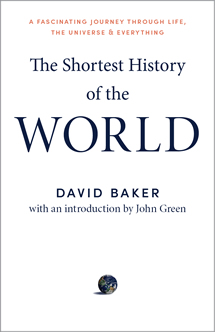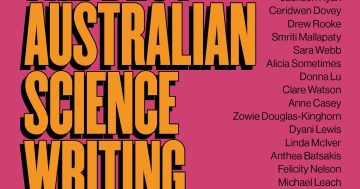Reviewed by Rama Gaind.
By David Baker, Black Inc., $26.99.
 The Shortest History of the World is a captivating exploration – through life, the universe and everything.
The Shortest History of the World is a captivating exploration – through life, the universe and everything.
As Baker puts it: this book follows the continuum of historical change of all the ‘stuff’ in the cosmos, from the Big Bang to the evolution of life to human history as simple clumps of hydrogen gas are transformed into complex human societies.
This ‘Big History approach allows us to see beyond the chaos of human affairs to the overall trajectory’. Baker looks at the dramatic and sudden changes we’re making to our planet and its biosphere and how history hints at what might come next.
Combining knowledge from chemistry, biology and physics with insights from the social sciences and humanities, it takes a bird’s eye view of 13.8 billion years.
History allows us to live many lives instead of just one, and this particular story instills in us the combined experience of billions of years.
The thread that runs through the entire grand narrative is the rise of complexity in the cosmos, from the first atoms to the first life to humans and the things we have made.
Our past is divided into three phases and by understanding the long-term story from billions of years ago, we are better placed to making long-term plans billions of years into the future. Forward thinking.
John Green notes in the foreword: David Baker introduces us not only to the history of our species and our planet but also to the history of our vast universe. We are not the end of that story, nor its beginning – instead, we have emerged in the middle of a tale that will continue long after we are gone.”
As Baker writes: “When we look into the night sky, we are not looking at the Universe, we are the Universe looking at itself.”











